Keywords: colonialism; imperialism; cultural colonialism; sovietising; cultural transfer; cultural dependences; cultural identity; cultural export
The paper analyses the potential of a theoretical comparison between communism and colonialism, focusing on the cultural dimension of the Stalinization process in Eastern Europe. The paper applies this theoretical perspective to late 1940s-early 1950s Romanian culture in relation with the appropriation of culture by the communist regime within the late 1940s political and ideological shift in Eastern Europe. The approach uses as a background for its argumentation a theoretical debate which started 2001 and has continued until today (Moore 2001, Kovačević 2008), also reinterpreting on a series of theories developed during as well as at the end of the Cold War (Kulski 1959, Kolarz 1964, Horvath 1972, Katsenelinboigen 1990). The paper uses a series of conceptual tools such cultural transfer, cultural dependences, cultural identity, cultural export, which are applied for the first time to the Romanian culture.
More...Some of the East European states (Poland and Hungary are the most pivotal cases) are amidst a process of transition from bureaucratic authoritarian rule. What I refer to as the "transition'" is a period when the rules of the game are not defined. They are in a constant flux because those in power are too weak to protect the old pattern and those who are pushing for change are too weak to impose the new code. The rules and institutions which are at stake shall define which new collective actors will be permitted to enter the political arena and which means of influence can legitimately be used by the competing political coalitions.
More...This article looks into research findings of the “Adequate Information Management (AIM)” project1 in the new light. A principal issue investigated here concerns the political communication culture, or to put it more precisely, the interface between the Brussels correspondents and their political news sources. While focusing on differences that can be detected in the processes of the EU news gathering in Brussels, the article highlights commonalities in reporting as appearing across national communication cultures. Indeed, the communications’ context in Brussels is an interesting research case: for journalists, it creates unique conditions for different journalisms and political communication cultures to meet; for scholars, it requires to address new questions in European communication research.
More...Elections are a prime concern for democracy. The study of elections and electoral systems becomes important in understanding how a political system will function. On the other hand, an anti-democratic political culture can distort democratic institutions. Thus one might wonder whether it really matters more which electoral system a country adopts or what political culture there is in that country. We argue that beside the constitutional arrangements and reformulating its electoral system and mechanism, an un-democratic culture of authoritarianism has underpinned much of Albanian political activity lately. The latter has been the prime cause of the lack of consolidation of Albanian democracy and not its institutions. Two empirical snapshots of the most important Albanian recent political events are delineated in order to understand the intricate mechanisms of institutions and political culture in shaping and reshaping the political system.
More...Using the concept of political culture, this article highlights that enduring patterns of thought and action governed the attitudes and the behavior of the Romanian communist elite since its coming to power and until the very end. Identity forming experiences from early periods, prior to the takeover and up to the Hungarian Revolution, decisively shaped the minds of the RCP leadership in such a way as to transform this party into the most monolithic in the entire Soviet bloc. Consequently, a reformist wing did not emerge from within the party ranks, as it happened in the other communist countries. This would directly influence not only the way in which communism collapsed in Romania, but also the transition from communism in this country. It was the revolution of 1989 that opposed for the first time a group of old-timers with reformist views to a dictator who hated reforms. In order to illustrate this thesis, the present study discusses the so-called "letter of the six" addressed to Nicolae Ceauºescu by six former members of the nomenklatura in March 1989. The article analyzes the conditions in which the protest emerged, the reaction of the regime when confronted with an unprecedented gesture, its impact on the Romanian population as well as abroad and, finally, its legacies in the post-communist period. The criticism of the supreme leader expressed in this letter did not provoke the revolution. It represented, however, the first reform communist manifesto in this country, and it expressed views that, through the post-1989 Romanian political elite, would become influential in the early days of post-communism, delaying the genuine democratic transition.
More...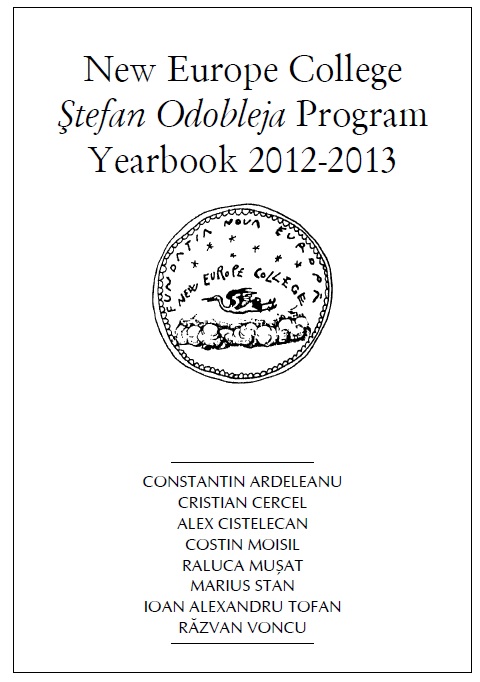
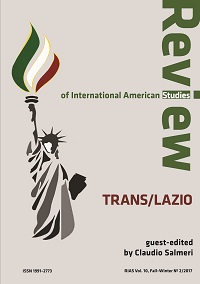
Keywords: Italy; political culture; US values; American model
This brief article examines the impact of US values on Italy’s political system since the end of World War II. It argues that, during the Cold War, the allegiance of the sizeable Communist Party to the Soviet Union, on the one hand, and the Catholics’ distrust of Americanism, on the other, prevented US principles from shaping the nation’s republican institutions and playing a significant influence on Italian political culture, notwithstanding Washington’s efforts to spread its own philosophy in the country. It also suggests that, after the end of the West-versus-East ideological conflict, the two major party coalitions paid only lip service to US values and referred to them mainly out of expediency while jockeying for position in their struggle for political power.
More...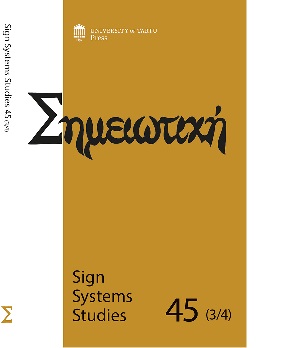
Keywords: imposture; autocracy; power; mimetic desire; Time of Troubles; Russian politics; Boris Uspenskij; René Girard;
Proceeding from materials relating to the “Time of Troubles”, this article examines the phenomenon of imposture (samozvanchestvo) as one of the symbols of Russian political history from the early 17th to the mid-19th century. The duration of the “impostor epidemic” coincides exactly with that of serfdom, and imposture itself can be described as a social reaction to a form of authority founded on total personal dependence. The article aims to develop further Boris Uspenskij’s argument that reveals in sacralization of the Tsar’s power in medieval Russia the main reason of imposture. René Girard’s conception of mimetic desire serves as the theoretical perspective for such a development.
More...Keywords: Hellenistic monarchy; the court of the Hellenistic king; Greek culture of dialogue and discussion; friends of the king; the council of friends; political decision-making process
The article deals with the problem of the political decision-making process at the court of the Hellenistic Kings. The Hellenistic Kings possessed a strong power and vast material and human resources. They took the administrative, legislative, juridical, military and other branches of power in their hands. Nevertheless in many cases when we have the possibility to follow the decision–making process one can notice that many kings preferred the collective forms of searching for the best solution of the state problems. The Hellenistic Kings involved courtiers who were their advisers and consultants in the decision-making process and in many cases were open for dialogue and for free discussions, for the alternative opinions of the advisers. The phenomenon of collective discussion could be easily explained as a political pragmatism, when dialogue, discussion or a brain-storm give much better result to find the right solution and to avoid mistakes. At the same time dialogue and discussion were the immanence of the Greek culture, the Greek cultural “code”. The culture of dialogue and discussion was highly developed in a Greek world. It influenced the education, the cultural and political life, etc. The Hellenistic Kings were educated according to the Greek tradition and they transferred the culture of dialogue and discussion into the political life of the state. Thus political pragmatism was combined with the features of Greek culture.
More...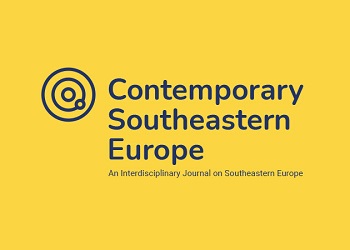
Keywords: populism;pop culture;ethno;music video;Podignimo Stupove;
This study attempts to shift the debate of the contemporary facets of populist ideologies from the realm of institutional politics to the realm of everyday life, popular culture, media and “invented traditions”. My intention is to demonstrate how these realms generate new sources and voices of populism, often downplayed in the academic debates on the subject. The paper stems from comprehensive research on discourses of identity (re)construction in post-Yugoslav Serbia as communicated in pop cultural media forms (specifically, music videos of all genres), in which I used a sample of 4733 music videos produced between 1980 and 2010 (and later). In this paper, I have chosen to focus on the case of the charity campaign Podignimo Stupove and its music video output. The campaign was launched as a pop-cultural initiative to help the restoration of the12th century monastery Đurđevi Stupovi in Stari Ras, a site of ut most historical significance and value for the national culture. Against the background of institutional changes that markedly redefined the place of religion in Serbian post-socialist society, the music videos discussed in this paper provide a valuable insight into the combined musical, textual and visual language of communication of some longstanding notions associated with “Serbian populism”.
More...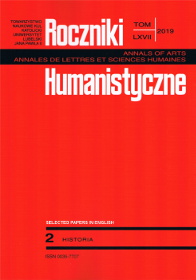
Keywords: Spain in the 20th century; autonomous communities; culture of modern Spain
The Polish version of the article was published in Roczniki Humanistyczne 61 (2013), issue 2. The political transformations in Spain that ended with the free parliamentary elections of 15th June 1977 were a powerful catalyst for the activity of the Spanish nation in all walks of life. Between 1975 and 1990 a real revolution took place in the Spanish mass media and in culture. It resulted in the setting up of modern periodicals (among others, El País, El Mundo, Navarra Hoy, Diario la Rioja and many others), over 2,600 radio stations and a network of modern television channels broadcasting programs devoted to the culture and languages of the autonomous communities. The Ministry of Culture established in 1977 supported initiatives promoting the multiculturalism of the Kingdom of Spain, which resulted in the opening of several dozen modern museums, institutes of modern art and the organization of numerous festivals.The decentralization of the country made it possible to emphasize the multiculturalism of the Spanish autonomous communities that today act as a magnet for 70 million tourists from all over the world.
More...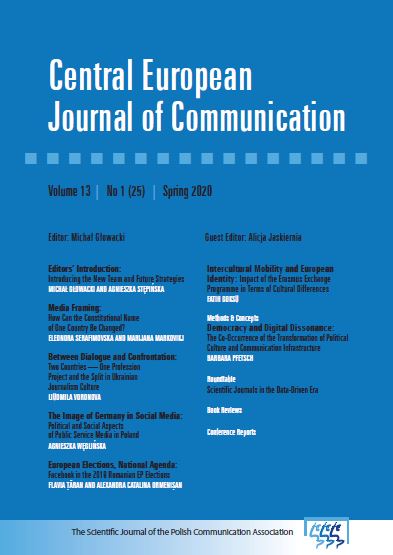
Keywords: democracy;digital public sphere;political communication;public debate;information flows;
The aim of this essay is to discuss the state of democracy in Western Europe in the light of an essential change in public spheres towards more dissonance, disconnection, and noise. It is argued that this condition is the unintended consequence of the co-occurrence of two long-term changes in contemporary societies: political culture changes in liberal democracy and changes in communication infrastructures. The interaction of the disruption of democracy and digital communication has implications for public spheres as opportunity structures for democratic speech and institutions. The dynamics of dissonant public spheres have created a new disinformation order, pushing new political actors and communication modes to the fore. These conditions threaten established patterns of authoritative information flows and public debate, which puts contemporarydemocracy under serious stress.
More...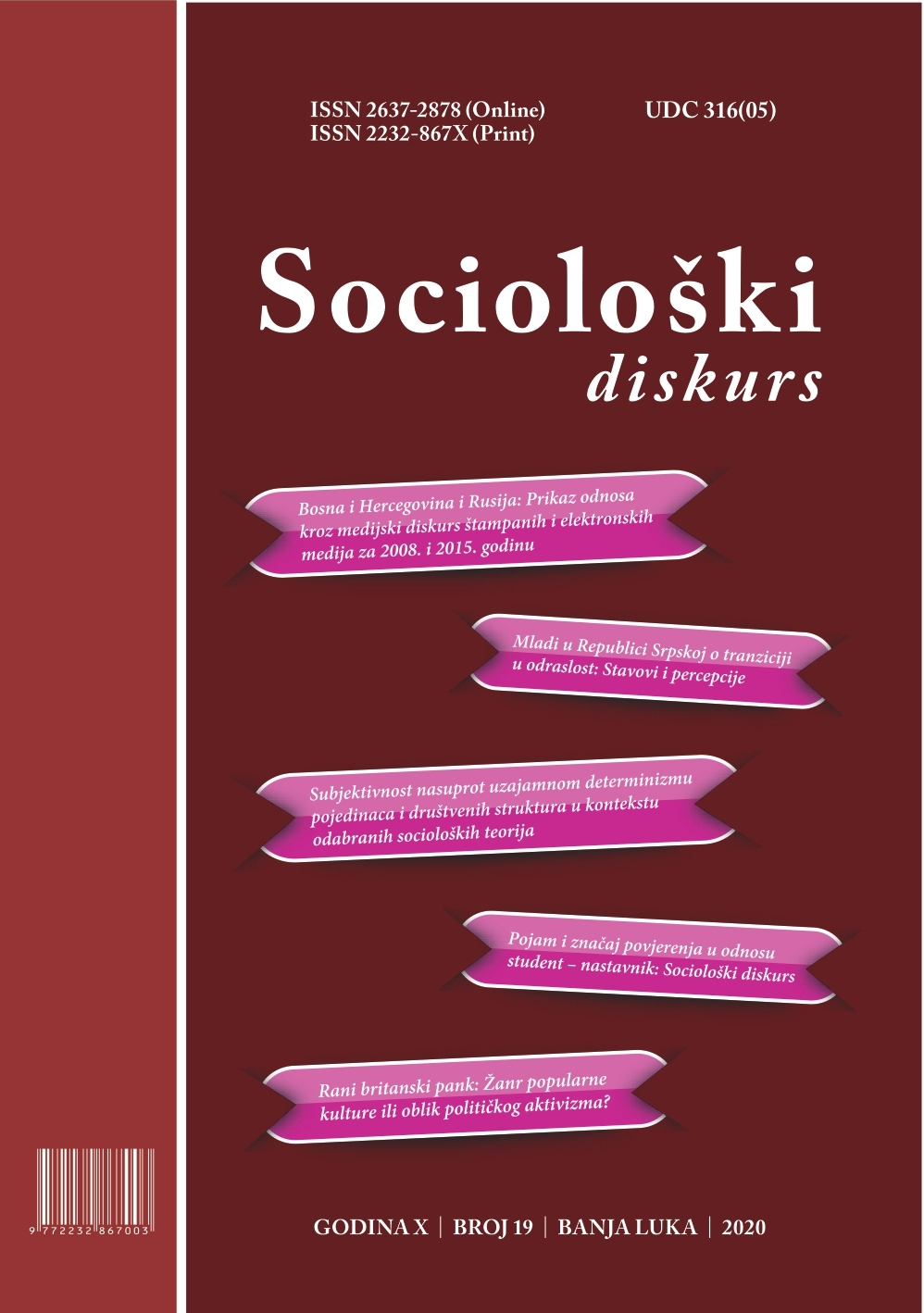
Keywords: punk-rock; popular culture; subcultures; politics; music industry;
The article deals with the possibilities of early British punk perception, primarily as an outgrowth of popular culture. It is considered that it emerges under its auspices and that it follows its basic guidelines. However, punk appears as its criticism as well, especially of some popular culture genres that preceded punk. In that way, punk establishes as a form of musical subculture. In Yugoslavia, this genre of music appeared, following the lead of British role model, enriching it with classical and avant-garde artistic interventions. The author tries, based on the sketching of socio-cultural context in which punk rises, to understand and interpret the actual presence of politics and its position within the phenomenon of punk rock.
More...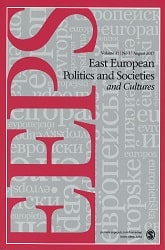
Keywords: Eastern Europe; political culture; political change; post-communism; postcommunist Europe; transition period; book review;
The review of: Values and Political Change in Post-Communist Europe William L. Miller, Stephen White and Paul Heywood Basingstoke: Macmillan New York: St Martin's Press , 1998, 460 pp.
More...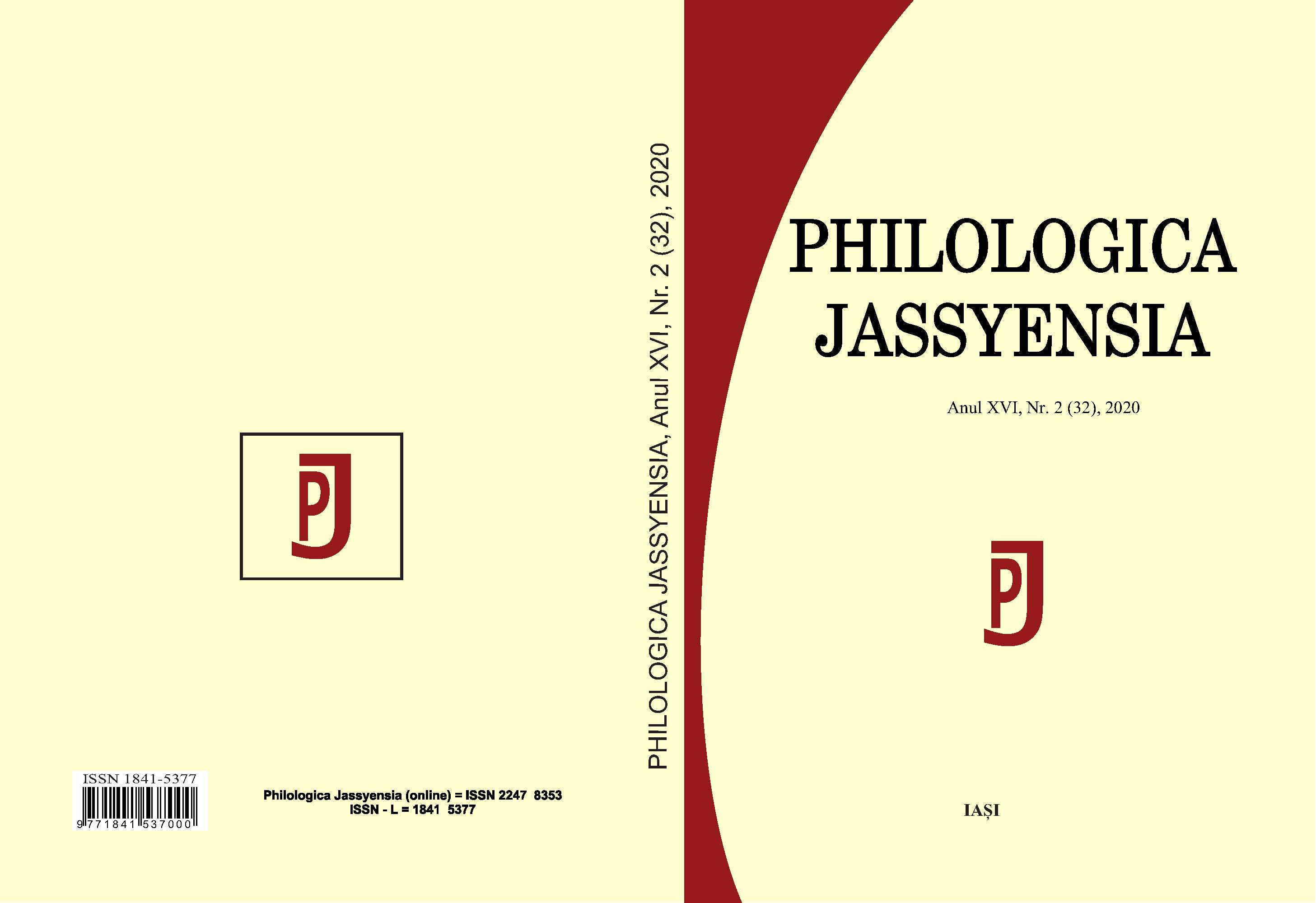
Keywords: formulae; traditional culture; Communist Party; political and academic discourse;
Starting from the report the Secretary General Xi Jinping delivered at the 19th Party Congress, the paper analyzes the relation between traditional culture and socialism with Chinese characteristics for a new era. Since socialism with Chinese characteristics has always been discursively related to the Chinese tradition and political speeches abound in references to tradition, we intend to find out what role tradition plays in the “new era” and what makes it important. The paper discusses the relation between the guiding Marxist ideology and tradition and looks at how the importance of tradition is explained to the masses by employing ritualistic formulae. The analysis is based on the elite political discourse and subsequent academic discourse acting as commentaries to the political discourse.
More...
Keywords: Witold Gombrowicz; Polishness; Polish Political Culture; Realism; Nominalism;
RESEARCH OBJECTIVE: The aim of this article is an analysis of Witold Gombrowicz’s position in reference to the archetype of Polish political culture. THE RESEARCH PROBLEMS AND METHODS: The main problem undertaken in the article is an analysis of Witold Gombrowicz’s position in reference to the question of Polishness, its components, and its relationship to Latin civilization. The article is based on an analysis of Gombrowicz’s Diary . THE PROCESS OF ARGUMENTATION: The article begins with a synthetic outline of two fundamental issues: the Latinness of European civilization and the debate surrounding the archetype of Polish political culture. This is followed by what constitutes the main body of the article: an analysis of Gombrowicz’s views on Polishness. RESEARCH RESULTS: The most important result of the scientific analysis conducted here is the indication of the main theses of Gombrowicz’s understanding of Polishness and of the relationship between Polishness and Latin civilization. Gombrowicz’s conception is presented as an innovative approach to the problem, transcending traditional takes on Polishness as a specific type of realism. CONCLUSIONS, INNOVATIONS, AND RECOMMENDATIONS: In his conclusions, the author indicates interpretative possibilities resulting from the perspective taken in the article, as well as areas that require further study, concerning such issues as the relationship between the Sonland and the Fatherland, and the culture of the Polish nobility during the “Saxon Era.”
More...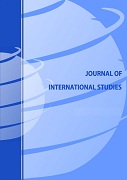
Keywords: Ukraine; interdependence; cultural situation; disinformation; post-truth;
This paper investigates narratives and ideology of disinformation campaign which Russian Federation launched into information space since February 2014 when undisguised occupation of Ukraine started. At the same time world liberal democracies were also targeted. In this study we examine the role of the national history and people’s cultural self-identification in the Russian-Ukrainian conflict. Moscow claimed they started the disguised war against Ukraine to protect ‘people who feels a connection to Russian culture’. And this narrative was not just a casus belli, but also the important factor of country’s socio-political destabilization. Russian Federation used Russian culture affinity to raise hostilities between people. Disinformation campaign was simultaneously inciting hostility against Ukrainians at the same time portraying ‘people who feels a connection to Russian culture’ as victims. Common spoken language in Ukraine was used to incite violence and disinformation convinced that those who speak Russian are in peril. While in fact Ukrainian language and culture are country-wide suppressed after Russification period, Russian propaganda stated otherwise. Disinformation campaign was inventing new reality, distorting history and denied Ukrainian ethnocide in 20th century. This campaign brought a number of mercenaries as combatants to the east-Ukrainian battlefield and also turned a number of Russia's propaganda consumers around the world into ‘viral carriers’ of conspiracy theories.
More...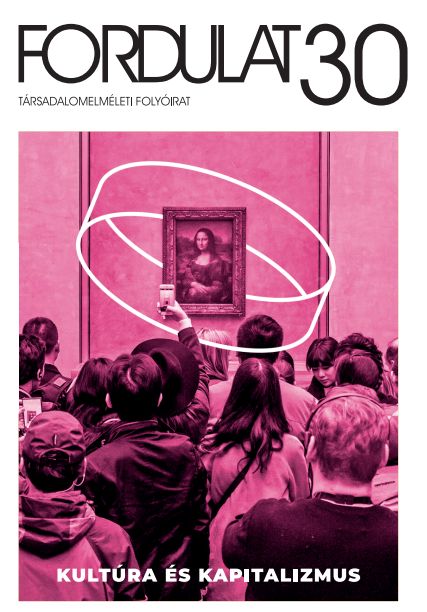
Keywords: culture;capitalism;cultural capitalism;cultural studies;cultural history;historical materialism;
Our study demonstrates that the analysis of culture should be embedded into the history of capitalism. Through this understanding of culture's materiality, we highlight that culture is not only a spiritual but also a materially embedded phenomenon. We argue that this analysis is also essential to outline culture's role in a post-capitalist world.Our study offers four perspectives to analyze the diverse, often indirect, relationship between culture and capitalism. We show how the diversity of culture is more than heterogeneity but rather part of class conflicts and struggles. By examining the cultural institutions, our paper points out that they play a crucial role in the reproduction of the laborforce. It also points out that global and nation-state-led cultural production are not contradictory but entangled phenomena. Finally, our paper emphasizes that the relationship between culture and capitalism cannot be understood as abstract laws but must also always consider the social trajectories of professional cultural producers, who are a central but often invisible dark matter.
More...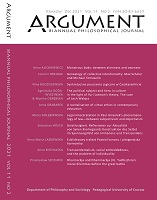
Keywords: Juri Lotman; Lech Wałęsa; subject; hero; explosion;
Politics appears to have a direct impact on the quality of our lives as citizens of states. We outline here the dependence between culture and its inherent mechanism of forgetting, and between a hero and a political subject. We employ the theory of Juri Lotman, who underlines the role of individuals and of single events in culture. The primary illustration given is the figure of Lech Wałęsa, politician, legendary co-founder of the Solidarity trade union, and Nobel Peace Prize winner. He exemplifies Lotman’s notion of a mobile hero, one who powered the course of history, but whose present-day political and social activity is of an empty and querulous nature, lacking a goal and deeper meaning, while the actions he performs take place within a closed semantic field. He is an example of a paradoxical hero, whose actions no longer generate tensions or build a new semiotic quality. Wałęsa’s problem is the ossification of his discourse and failure to perceive that transformation has already taken place.
More...